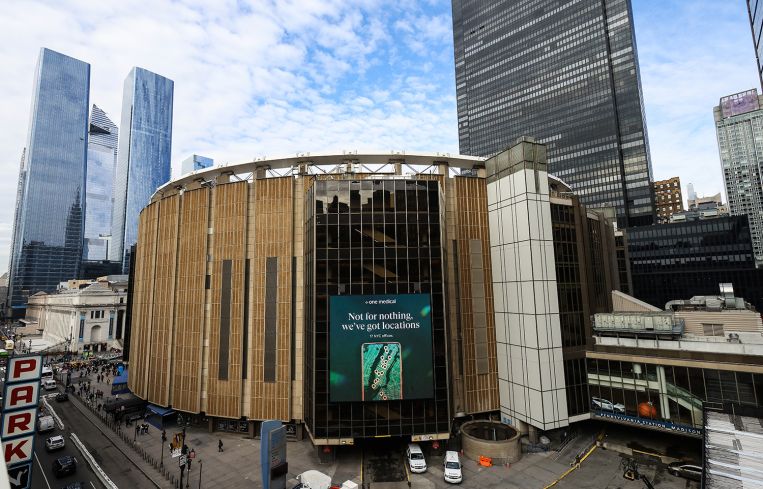Madison Square Garden’s Permanent Tax Break Has Cost the City Almost $1B Since 1982
By Rebecca Baird-Remba July 11, 2023 6:01 pm
reprints
Just as the City Planning Commission prepares to renew Madison Square Garden’s operating permit for 10 more years, the Independent Budget Office (IBO) released a detailed report showing the arena’s permanent tax break has cost taxpayers nearly $1 billion since 1982.
The New York State Legislature passed the tax exemption — which was not intended to be permanent — 40 years ago to keep the New York Rangers and Knicks from leaving the city. The abatement has cost the city roughly $42 million this year, for a total cost of roughly $948 million since legislators implemented the policy in 1982.
But the danger of the Knicks and Rangers picking up stakes is no longer an issue since its “transit-connected location, large market size and established fan base, coupled with restrictions on alternative places the franchises could relocate, signal that there are many reasons outside of the property tax exemption for the teams to remain located in New York City,” the IBO wrote in a press release.
The agency also pointed out that MSG does not have to reveal data to the city about its employment practices, ticket sales or operating expenses, unlike Citi Field and Yankee Stadium. The New York City Economic Development Corporation (EDC), which administers tax breaks to businesses, told IBO that the Garden would not qualify for any other economic incentive programs offered by the city.
“We do not generally view an entertainment facility located in Midtown Manhattan as a priority project that aligns with the city’s economic development policy,” EDC told the IBO.
MSG’s permanent tax break started after Gulf & Western Industries, which owned both teams and the Garden in the early 1980s, argued that labor, taxes and energy costs were simply too high to keep the teams in New York City. So the administration of then-Mayor Ed Koch helped negotiate the tax break, 30 years of discounted electricity, and a union contract aimed at reducing operating costs. Afterward, Koch admitted that he had intended to give MSG a 10-year tax exemption.
At the time, Gulf & Western claimed it was absorbing millions of losses annually, and even with the concessions and abatements would still lose roughly $3 million per year. “While MSG ownership did not publicly provide documentation to support its claim of operating losses, many legislators, as well as the city’s mayor, ultimately accepted the legitimacy of such claims,” the IBO noted in its report.
But MSG’s tax break and location above Pennsylvania Station has been wearing out its welcome for some New Yorkers.
The local Community Board voted in April to deny the Garden’s permit to allow it to remain at its current location, though Department of City Planning head Dan Garodnick recommended to renew it ahead of a Wednesday vote. Meanwhile, a group of New York state lawmakers has been pushing to strip the Garden of its tax exemption.
Ultimately, the state legislature would have to repeal the current tax break for the city to have control over future incentives for the Garden.
The IBO recommends that the city, rather than the state, decide whether the tax break continues and review it on a regular basis. It also argues that any future subsidy to the arena should require MSG’s parent company, Madison Square Garden Entertainment, to disclose employee wages, labor standards and other data about its operations.
An MSG Entertainment spokesperson said in a statement that the report was “slanted, clearly politically motivated and unfairly singles out Madison Square Garden. If the IBO’s analysis was applied across all other stadiums and arenas, it would be evident that these governmental subsidies collectively cost the city billions of dollars.“
Rebecca Baird-Remba can be reached at rbairdremba@commercialobserver.com.



